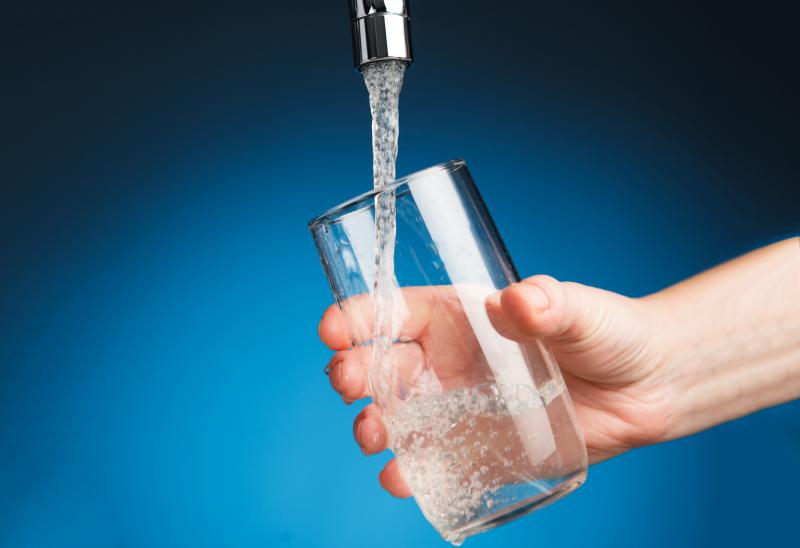Water is a critical part of our lives, making up approximately 60% of our bodies, and is responsible for a number of vital functions including regulating your body temperature, removing toxins, and protecting your spinal cord, joints, and tissues. Other parts of your body such as your skin, would lose shape and fullness if you did not drink water. Water is also needed for your body’s chemical reactions. In this article, we will discuss the importance of water filtration and how it can help you stay healthy by drinking high-quality, clean water. Learn more about the under sink water filter system.
The Reasons Why You Need Filtered Water
There are many benefits to having a filtration water system in your home. Please read on:
Better Taste & No Odors
Even though the majority of tap water is safe it doesn’t eliminate contaminants. The taste of tap water is suitable due to heavy metals as well especially when you stay in boho dorm rooms. Filtered water will help to remove these metals and improve the taste.
Heavy metals are responsible for foul smells and odors found in tap water. Organic compounds also contribute to these odors and can harm your body over time.
Save Money – Save The Environment
People purchase bottled water for many reasons including it’s safer to drink. That said, you can have safe drinking water by using a filter system at home while saving on the cost as you did to save on the repairs of the Miseno sink.
The cost of bottled water is high but having a filtration system will also help out the environment. The plastic bottles will find their way into landfills impacting the environment.
Better Health
Contaminants and viruses will enter your body through drinking water. If the water is not safe to consume, it will have an impact on your daily life. You should not wash food, brush your teeth, or cook with water that is not safe. Showering with contaminated water can lead to breathing issues. Also, if you have children, the quality of your water will have a major impact on them as well. If they come in contact with the impurities found in tap water, they will probably become ill.
Avoiding Man-Made Or Natural Issues
Contaminants can enter your water system after flooding in the area and get into municipal pipelines. Floor water will collect impurities and will carry them into your home.
Contaminants can enter your water through other sources including construction sites. Chemicals used at these sites can seep into groundwater and eventually your drinking water. As an example, if asbestos is used on a construction site, it will contaminate your drinking water. Asbestos is well-known to be a serious health risk.
Different Types Of Home Water Filters
The three most common types of home water filters are Ultrafiltration Water Filters, RO Reverse Osmosis System, and Activated Carbon Water Filters. Check to learn more about Waterdrop water filters.
Ultrafiltration
The principle behind ultrafiltration and ultrafiltration membrane screening is the pressure difference between the two sides of the other membranes which is the driving force with the ultrafiltration membrane acting as the filter medium. When the raw liquid passes through the ultrafiltration membrane at a certain pressure, the surface is thickly covered. Water and small molecule elements pass through tiny pores to become saturated. Elements in the raw solution with a volume greater than the membrane’s micropore size are then retained on the liquid inlet side resulting in a concentrated solution. Purification, concentration, and separation are all performed with a specific purpose in mind.
Reverse Osmosis
This is the most advanced membrane separation technology available to date. These elements and water are separated on the principle that other substances cannot pass through the semipermeable membrane if the solution’s osmotic pressure is greater.
The reverse osmosis membrane has a very small pore size allowing it to eliminate colloids, organic matter, dissolved salts, microorganisms, and other impurities. The system’s removal rate is 97 to 98 percent.
Activated Carbon Water Filter
This water filter has an activated carbon rod which is responsible for absorption, the removal of odors, removal of color, and chlorine removal, and will improve the taste of the water. Activated carbon is a porous material with a higher surface area and absorption capacity than your standard carbon. Carbon rods are literally carbon materials in the simplest form. They have a much smaller surface area and lower natural absorption capacity because they are relatively solid.
In Conclusion
Bacterial, residual chlorine, sediments, rust, volatile substances, and other pollutants and impurities in the water can be separated and removed by the water purifier. Adding to that, the cost is a great deal less than bottled water and the water has a much lower taste. It’s, without a doubt, one of the best drinking solutions for families.

